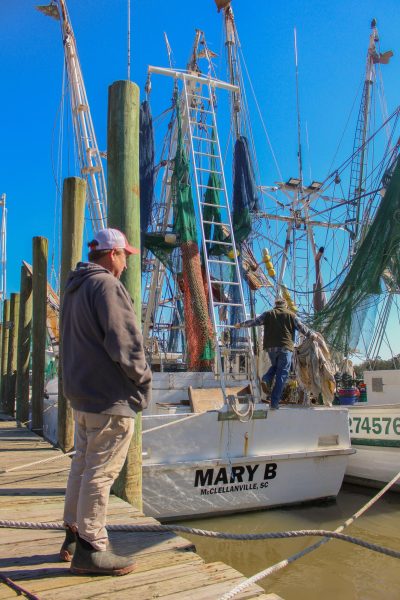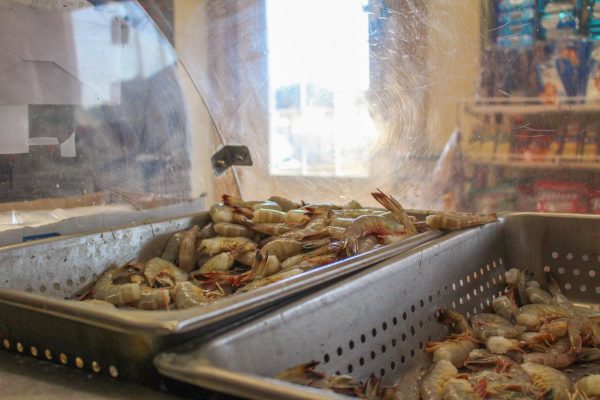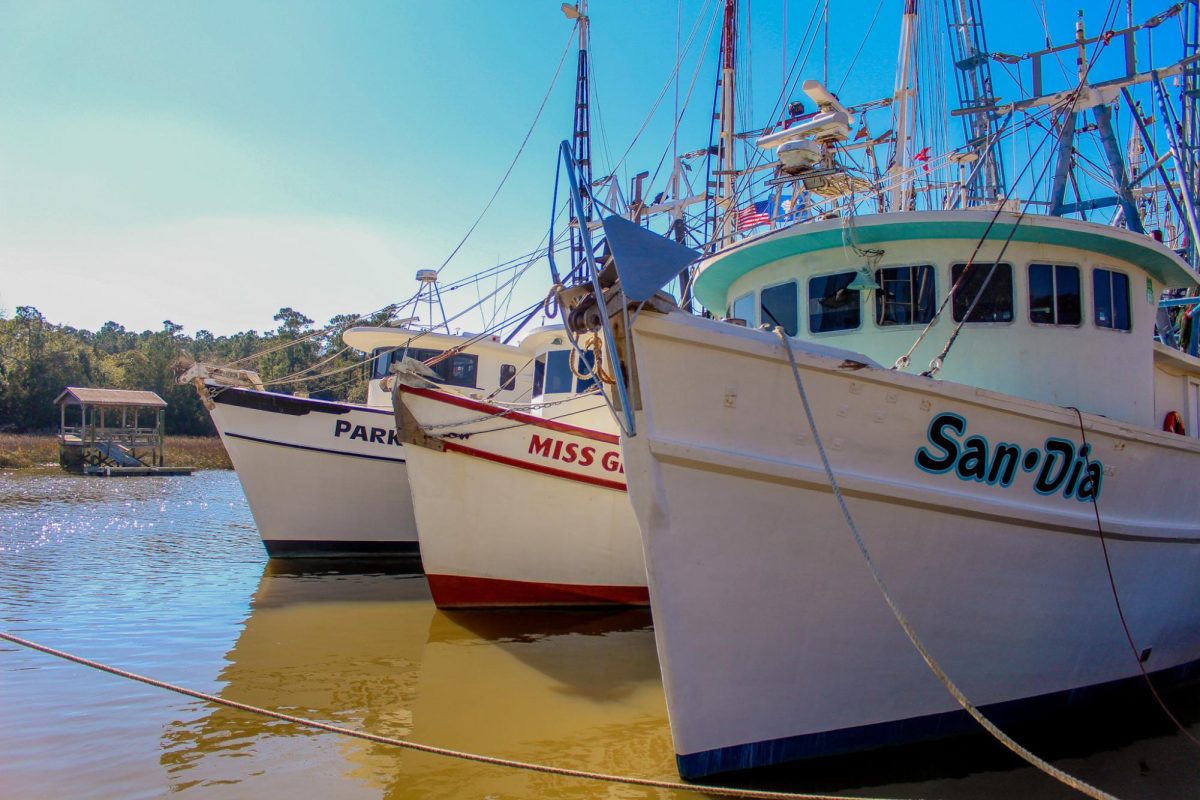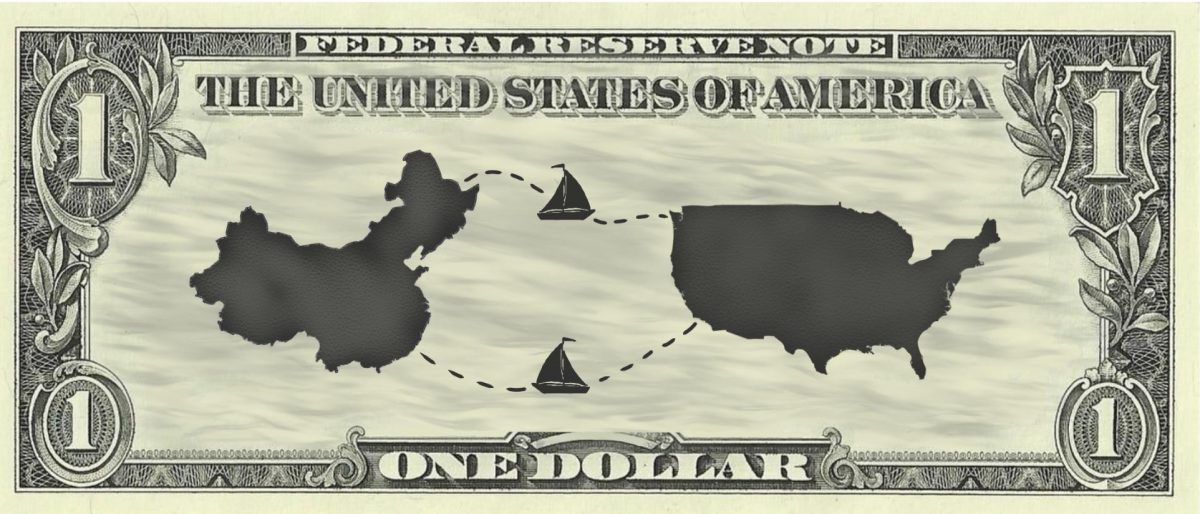The salty ocean air, the smell of pluff mud, seafood restaurants line the streets, yet shrimp boats sit docked at the harbor. This is the scene pictured in the future by local shrimper and president of South Carolina’s Shrimpers Association, Rocky Magwood, as a result of imported shrimp.

boats that sell to us unloaded and keeping up with the product coming and going,” Rhodes said. (Scarlett Lewis)
Shrimping has long been a tradition and staple of the local Charleston industry, with generations of shrimpers selling their product locally and beyond. A proud heritage and position for many shrimpers.
However, as a result of increasingly high levels of imported shrimp, local shrimping jobs are at risk, according to Rocky Magwood.
“The price of shrimp is terrible,” Magwood said. “Most shrimpers are broke right now.”
The value of shrimp has been shrinking as imports have risen. As a result, shrimpers can’t sell their shrimp for as much as they used to. Including inflation and other costs, shrimpers are tight on money.
“We’ve been struggling with the price of fuel, and now we’re struggling with the price of fuel and that we can’t sell our product,” Magwood said. “Fuel back then was around 80 cents; now we’re paying around 4 dollars [a gallon] for fuel.”
The expenses don’t stop at fuel either, the cost to buy nets has gone from $10,000 in the 90’s to $80,000 now; shrimpers must also pay a dock rate to keep their boats at the dock. This can strain an already tight budget.
“You start taking money that you would have spent on your house or your boat [to pay dockrate],” Magwood said.
Unfortunately for shrimpers, if they try to raise the price of their product, they risk losing even more clients to the cheap and overwhelming amounts of imported shrimp.
“One point eight million pounds [of shrimp are eaten each year], this past year [foreign shrimp companies] have dumped… 2.8 million pounds” Magwood said. “They’ve shipped in more product into the U.S. than the U.S. eats.”
Flooding the market with low cost products has caused a concern not only of price but also of purchases of local shrimp in the first place.
“When you overstock the freezer, there’s no room for us to put our product,” Magwood said.
There is a concern for careers that extends beyond shrimpers.
“There’s over 150 shrimp trawl licenses in the state of South Carolina… each boat has two deckhands and one captain, that’s [almost] 500 people that lose their jobs… and that’s not including the dock workers,” Magwood said.

or other chemicals,” Rhodes said. (Scarlett Lewis)
A local dockworker, Wade Rhodes, has already seen a decrease in boats going out to trawl.
“There’s definitely less commercial boats [shrimping] now, then there were 15-20 years ago,” Rhodes said.
Luckily for these locals, there seems to be an increasing amount of support by the town and by local businesses who will buy local shrimp.
“There are probably more [businesses] in the past that [used] Imported shrimp [than there are now] because of the big push [to buy local shrimp],” Rhodes said. “I think we’re [always going to] have a local market because of all of the restaurants.”
The Shrimpers Association has reached out to local politicians like Rep. Nancy Mace, and so far have only heard a readiness to support their cause.
“Everybody we’ve talked to wants to help us,” Magwood said. “We’re lucky; other places and other towns don’t have a community that loves us as much as you do.”
Without the support from the community and demand from the local economy, shrimpers wouldn’t be able to support their work.
“All we want to do is to be able to work and provide for our families… we want to have the American dream… and just do our job,” Magwood said.








